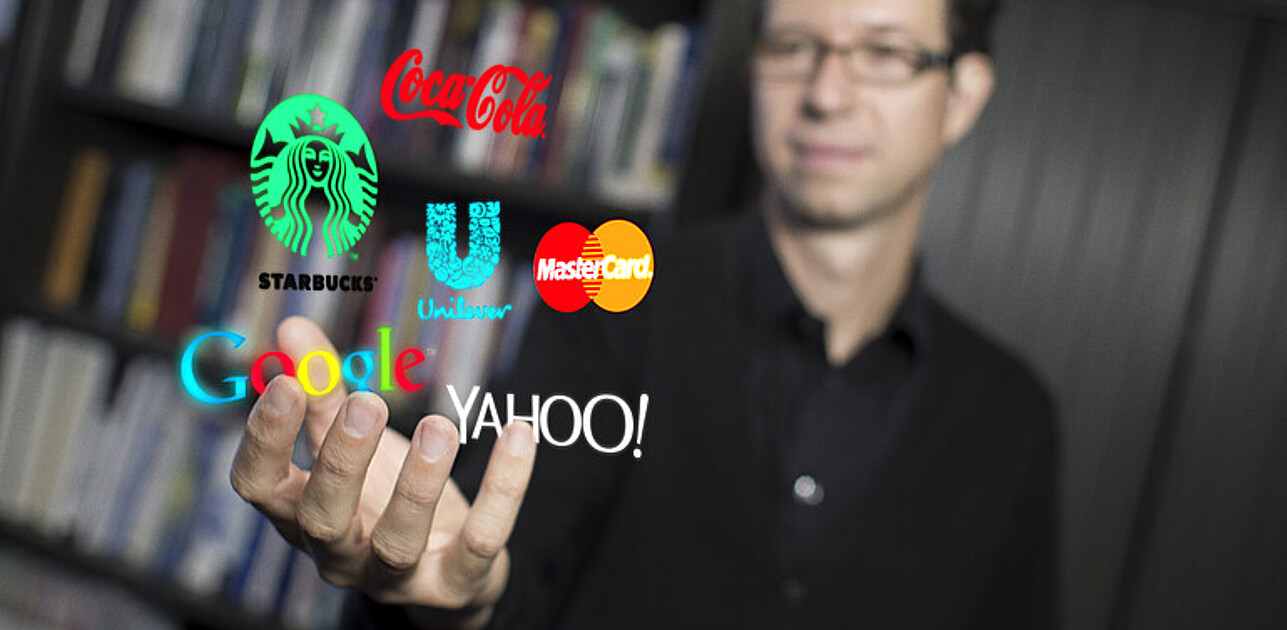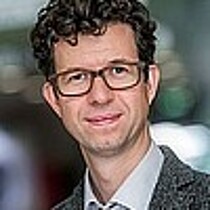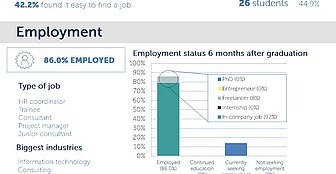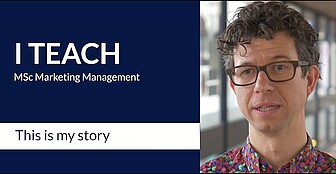
Blog: Monday, 1 September 2014
What is marketing?
I always start “introduction to marketing” sessions with this question. Whether I’m teaching first-year undergrads or senior executives from outside the marketing function, the answers I typically receive tend to be relatively concrete activities related to marketing research or to one of the 4 Ps (mostly product and promotion as opposed to price and place). These answers are of course correct. The reason I ask this question is to illustrate that marketing is a broad functional area with many different activities and responsibilities.
At the same time, these answers are also wrong because they describe parts of marketing and not marketing as a whole. So, the second reason for asking this question is to introduce a broader and more general approach to marketing. I typically provide two definitions: the standard one from the American Marketing Association (accurate but long and boring) and a more interesting one, along the lines of “creating happy customers” (hopefully at a profit).
However, there’s another way of looking at marketing. If you take an even broader perspective, you could argue that “marketing is the nexus between supply and demand”. This definition is even more abstract and refers to the role of marketing in the economic system. Now, I don’t often look at economics for practical insight, but I do think that this is a useful way of looking at marketing. The reason for this is that it describes marketing as a point of contact between supply (the firm) and demand (potential customers). As such, it portrays marketing as the frontier between a company and its external environment.
I find the latter definition useful because we used to think of companies and their external environments as relatively well-defined. Generally, it should be quite easy to find the point where you can say “This is where the company ends”. Except that it is not. Marketing sits at the frontier between the firm and its environment. And the frontier is breaking down.

marketing is the nexus between supply and demand
I recently made this point in a short video for RSM Discovery. I think it’s important so I’m repeating it. We used to think of activities like market intelligence gathering, product design, and communication as relatively well-defined and structured tasks. Marketing specialists were – and still are – tasked with going out and fetching information about needs and preferences, followed by feeding this insight to engineers so they can make products that people actually want to buy, and then go out again and tell potential customers about the wonderful new products. These tasks are now becoming much more complex and, as a result, the distinction between a firm and its outside environment is often blurred. For the sake of time, I’ll only list two examples but others can easily be made.
Social media are turning standard communication approaches upside down. Firms should be prepared to interact with individual customers very quickly and openly. Marketers are ditching their megaphones and starting to engage in conversations. One of the most influential ideas within marketing in the past few years is the notion that word-of-mouth is much more persuasive than company-sponsored advertising. In communication, the frontier between the company and its customers is breaking down.
One of the buzzwords in new product development is open innovation. Scores of companies are realising that customers can be a great source of ideas and they are redesigning their innovation funnels to benefit from customer-generated new product ideas. Research shows that, in addition to being a cheap way to get new ideas, user-designed products are also often more successful and more profitable than the ones conceived inside the company. In new product development, the frontier between the company and its customers is breaking down.
Collaborative networks are springing up in many areas of marketing. For example, look at how Unilever is engaging with NGOs and governments to foster its increasingly central social mission. These networks will change the way marketing operates. If the frontier between the firm and its environment is breaking down, then marketers need to change the way they conceive their work. The trend is too new and too broad to know for sure how marketing is going to look like in a decade or two but I think that we can already draw at least two conclusions.
A key skill for marketers will be finding the right people and get them to talk to each other to achieve important marketing goals. Marketers’ social skills and sensitivity will need to be even sharper than before to be able to engage diverse stakeholders – who are often speaking different languages, holding different perspectives, and pursuing different goals.
If the frontier between a firm and its environment is breaking down, all parts of the organisation need to be able to engage with external stakeholders and hold discussions on behalf of the company. This may be the death sentence for the marketing department but only because marketing will be everywhere.
Wharton School, University of Pennsylvania

Stefano Puntoni is the Sebastian S. Kresge Professor of Marketing at The Wharton School. Prior to joining Penn, Stefano was a professor of marketing and head of department at the Rotterdam School of Management, Erasmus University, in the Netherlands. He holds a PhD in marketing from London Business School and a degree in Statistics and Economics from the University of Padova, in his native Italy.



















Science Communication and Media Officer

Corporate Communications & PR Manager
Rotterdam School of Management, Erasmus University (RSM) is one of Europe’s top-ranked business schools. RSM provides ground-breaking research and education furthering excellence in all aspects of management and is based in the international port city of Rotterdam – a vital nexus of business, logistics and trade. RSM’s primary focus is on developing business leaders with international careers who can become a force for positive change by carrying their innovative mindset into a sustainable future. Our first-class range of bachelor, master, MBA, PhD and executive programmes encourage them to become to become critical, creative, caring and collaborative thinkers and doers.

RSM uses cookies to measure website statistics, enable social media sharing and for marketing purposes. By clicking accept cookies or by continuing to use this website, you are giving consent for us to set cookies when visiting this website. See our cookie policy for more information about cookies and how to adjust your cookie settings.